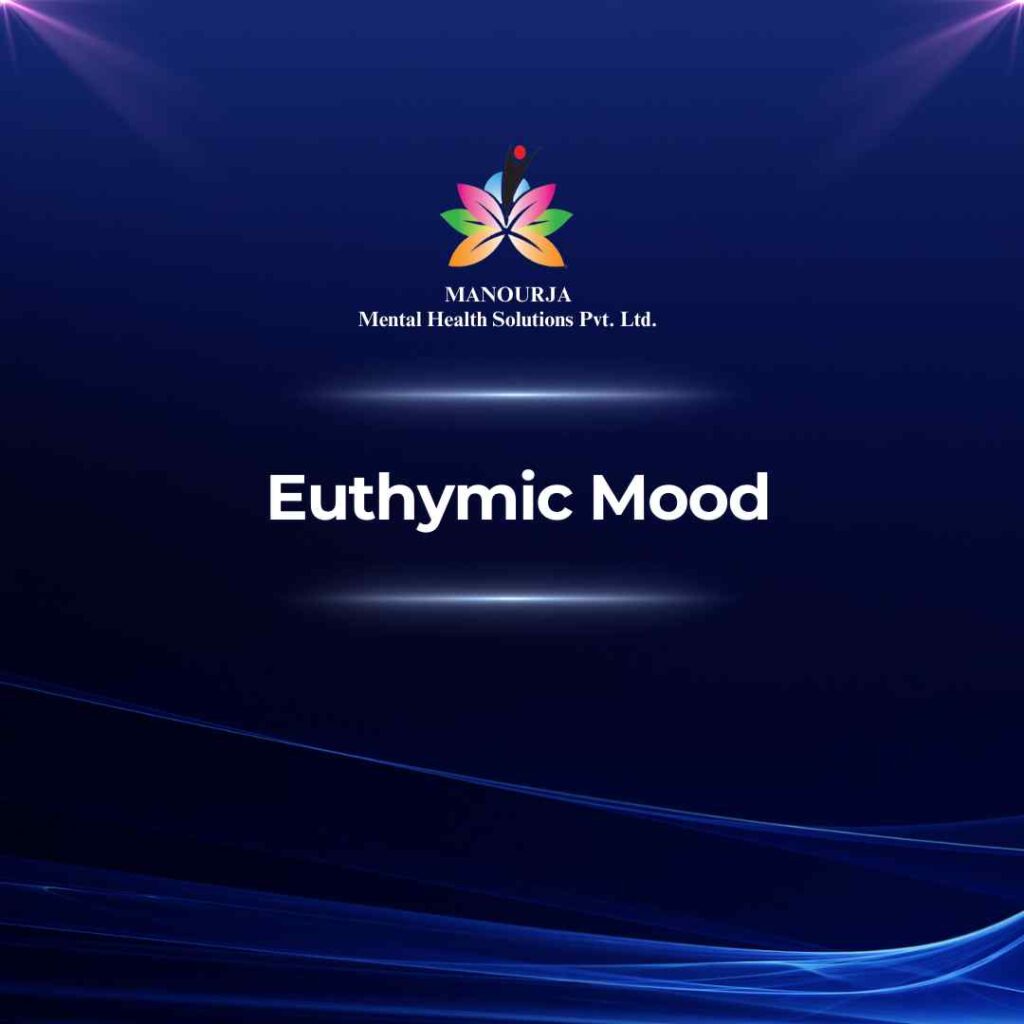Euthymic Mood

Euthymic mood refers to a state of stable mental health and emotional well-being. It is characterized by a balanced, even-tempered mood that is neither overly elevated nor excessively low. Individuals experiencing a euthymic mood typically feel content, calm, and at peace. This state is considered the baseline or “normal” mood and is often used as a reference point in psychiatric evaluations to compare against episodes of mood disorders.
Euthymic Mood as a Sign and Symptom of Mental Illness
While euthymic mood itself is not a sign of mental illness, it plays a crucial role in understanding and diagnosing mood disorders. Euthymia is the desired state in the treatment of mood disorders, indicating that the individual’s mood has stabilized and returned to a normal range. However, fluctuations from euthymic mood to extreme highs (mania) or lows (depression) are indicative of underlying mental health issues.
Mental Illnesses and Conditions Associated with Euthymic Mood
In bipolar disorder, individuals cycle between episodes of mania, hypomania, and depression, with periods of euthymia in between. Euthymic periods in bipolar disorder are significant as they indicate a return to stable mood and functioning. Effective treatment aims to extend these euthymic periods and minimize the frequency and intensity of mood swings.
- Cyclothymic Disorder
Cyclothymic disorder involves chronic mood fluctuations that are less severe than those seen in bipolar disorder. Individuals experience periods of hypomanic symptoms and depressive symptoms, with intervals of euthymic mood. The presence of euthymic periods helps differentiate cyclothymic disorder from more severe mood disorders.
For individuals with major depressive disorder, achieving a euthymic mood is often a primary treatment goal. While euthymia itself is not a symptom of MDD, it signifies remission and recovery from depressive episodes. Monitoring euthymic mood can help in assessing the effectiveness of treatment and preventing relapse.
In persistent depressive disorder, individuals experience chronic, low-level depression that lasts for at least two years. Periods of euthymic mood can occur, providing temporary relief from depressive symptoms. These euthymic periods are usually short-lived but are important for evaluating treatment progress.
While not typically characterized by euthymia, individuals with borderline personality disorder can experience brief periods of euthymic mood between episodes of intense emotional instability. These periods of emotional stability are crucial for treatment and provide a baseline for understanding the impact of therapy.
Conclusion
Euthymic mood is a state of emotional stability and well-being that serves as an important reference point in the diagnosis and treatment of mood disorders. While euthymia itself is not a symptom of mental illness, its presence and maintenance are key indicators of successful treatment in conditions such as bipolar disorder, cyclothymic disorder, major depressive disorder, persistent depressive disorder, and borderline personality disorder. Understanding and achieving euthymic mood is crucial for improving the quality of life and mental health outcomes for individuals with these conditions.
At MANOURJA, we believe in the transformative power of counseling. Our experienced therapists offer a safe and supportive space where you can explore your thoughts, emotions, and challenges. Through personalized counselling sessions, we’ll work together to develop coping strategies, build resilience, and achieve lasting positive change. Discover the path to a healthier, happier you with MANOURJA counselling services.
MANOURJA Rehabilitation Services
At MANOURJA, we’re dedicated to helping you in rebuild your life, after difficult times. Our rehabilitation services focus on understanding what you need to move forward, whether you’re recovering from addiction, trauma, or any psychological – social challenges. We create personalized plans, that are all about helping you, regain your strength and find hope again. With a caring team by your side, you’ll have the support to make real progress and take steps toward a brighter, healthier future.
